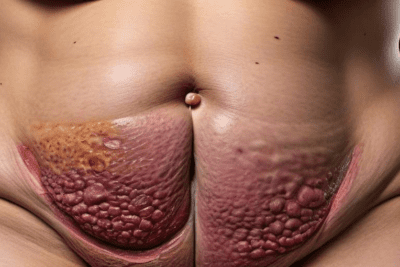
Exploring Natural Remedies and Herbs for Diabetes Control: An In-Depth Guide

Exploring Natural Remedies and Herbs for Diabetes Control: An In-Depth Guide
Introduction
Welcome to our comprehensive guide on exploring natural remedies and herbs for diabetes control. In this article, Exploring Natural Remedies and Herbs for Diabetes Control: An In-Depth Guide, we will delve into the world of natural solutions that can help manage diabetes effectively. With the rising prevalence of diabetes worldwide, it's crucial to understand alternative approaches to complement conventional treatments. We aim to provide you with valuable insights and information to empower you in your journey towards better health and diabetes management.
Understanding Diabetes
Diabetes is a chronic condition characterized by high blood sugar levels. It occurs when the body either doesn't produce enough insulin or is unable to effectively use the insulin it produces. There are two main types of diabetes: type 1 and type 2. Type 1 diabetes is an autoimmune disease where the immune system attacks and destroys the insulin-producing cells in the pancreas. Type 2 diabetes, on the other hand, is a metabolic disorder usually associated with lifestyle factors such as poor diet, sedentary behavior, and obesity.
Conventional Approaches to Diabetes Management
Conventional diabetes management primarily focuses on pharmaceutical interventions, such as insulin injections and oral medications. While these treatments are essential for many individuals, exploring natural remedies and herbs can be a complementary strategy to enhance overall diabetes control. Natural remedies offer the potential for managing blood sugar levels, reducing insulin resistance, and improving overall well-being.
Herbal Remedies for Diabetes Control
1. Cinnamon
Cinnamon is a popular spice known for its sweet and warming flavor. It has also been studied for its potential benefits in diabetes management. Research suggests that cinnamon may help lower blood sugar levels by improving insulin sensitivity. Incorporating cinnamon into your diet can be as simple as adding a sprinkle to your morning oatmeal or tea.
2. Fenugreek
Fenugreek is an herb commonly used in traditional medicine. Studies have shown that fenugreek seeds can help lower blood sugar levels and improve glucose tolerance. It contains soluble fiber, which can slow down the absorption of carbohydrates and contribute to better blood sugar control.
3. Gymnema Sylvestre
Gymnema Sylvestre is a woody vine native to tropical regions. It has a long history of use in Ayurvedic medicine for its potential to lower blood sugar levels. Gymnemic acids found in this herb may help reduce sugar cravings and decrease the absorption of glucose in the intestines.
4. Bitter Melon
Bitter melon, also known as bitter gourd, is a vegetable commonly consumed in Asian cuisine. It contains compounds that mimic the action of insulin, helping to lower blood sugar levels. Bitter melon may also improve glucose utilization, making it a valuable addition to a diabetes-friendly diet.
Lifestyle Modifications for Diabetes Control
In addition to incorporating natural remedies and herbs into your routine, making certain lifestyle modifications can significantly contribute to diabetes control. Here are some key aspects to consider:
1. Balanced Diet
Adopting a balanced diet that focuses on whole, unprocessed foods is crucial for managing diabetes. Emphasize high-fiber foods, lean proteins, healthy fats, and plenty of fruits and vegetables. Limit your intake of refined sugars, processed foods, and unhealthy fats.
2. Regular Exercise
Engaging in regular physical activity can help improve insulin sensitivity and promote weight management. Aim for a combination of cardiovascular exercises, strength training, and flexibility exercises to reap the maximum benefits.
3. Stress Management
Chronic stress can negatively impact blood sugar levels. Implement stress management techniques such as meditation, deep breathing exercises, or engaging in activities you enjoy to reduce stress and promote overall well-being.
4. Sufficient Sleep
Prioritize getting adequate sleep each night. Lack of sleep can disrupt hormonal balance and impair glucose metabolism, leading to difficulties in blood sugar control.
Conclusion
In conclusion, exploring natural remedies and herbs for diabetes control can be a valuable adjunct to conventional treatments. Incorporating cinnamon, fenugreek, Gymnema Sylvestre, and bitter melon into your diet, along with lifestyle modifications, can significantly contribute to improved diabetes management. Remember, it's essential to consult with your healthcare provider before making any significant changes to your diabetes treatment plan. https://diabetescurenow.com/









